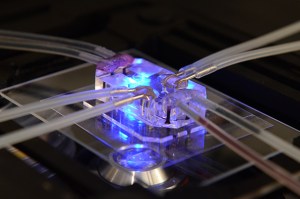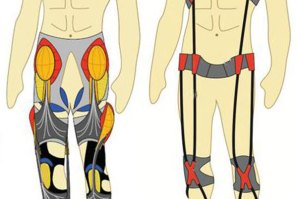Tag: Wyss Institute for Biologically Inspired Engineering at Harvard University
-
Health
Organs-on-chips evaluate therapies for lethal radiation exposure
A team at the Wyss Institute at Harvard has received a $5.6 million grant from the FDA to use its organs-on-chips technology to test human physiological responses to radiation and evaluate drugs designed to counter those effects.

-
Health
Using clay to grow bone
Researchers from Harvard-affiliated Brigham and Women’s Hospital (BWH) are the first to report that synthetic silicate nanoplatelets (also known as layered clay) can induce stem cells to become bone cells without the need of additional bone-inducing factors.

-
Science & Tech
Technology to help monitor concussions
Researchers recently completed the first clinical study of a new rapid neuroassessment device they developed to quantitatively measure neuromuscular performance. The team is currently conducting a study with athletes in the Boston area to determine the sensitivity of the technology in diagnosing concussions.

-
Science & Tech
Two Harvard teams win energy grants
Two Harvard-led teams are among the 66 selected by the Department of Energy’s Advanced Research Projects Agency – Energy (ARPA-E) that will receive a total of $130 million in funding through its OPEN 2012 program, which is designed to support innovative energy technologies.

-
Health
New way to model human disease
Researchers at the Wyss Institute for Biologically Inspired Engineering at Harvard University have mimicked pulmonary edema in a microchip lined by living human cells. They used this “lung-on-a-chip” to study drug toxicity and identify potential new therapies to prevent this life-threatening condition.
-
Science & Tech
Smart suit improves physical endurance
Harvard’s Wyss Institute for Biologically Inspired Engineering announced that it has received a $2.6 million contract from the Defense Advanced Research Projects Agency (DARPA) to develop a smart suit that helps improve physical endurance for soldiers in the field.




